Performer Jane Longhurst was flying back to Tasmania after completing a theatre residency in New York, when she asked herself some important questions about how she wanted her future career to look.
It was November 2018, and Longhurst had just spent two-and-a-half weeks working with Manhattan theatre company Elevator Repair Service, acting as “a fly on the wall” in a bid to learn about the group’s creative processes. Elevator Repair Service came to Ten Days on the Island in 2013 and performed at Hobart’s Theatre Royal, which is when Longhurst met the performing arts group.
During her time in New York, Longhurst also stumbled upon a free lunchtime performance of Samuel Beckett’s Happy Days in Madison Square Park by Academy Award winning actor Dianne Wiest (best known for her many Broadway performances, her roles in films including Footloose, The Lost Boys, Bullets over Broadway, The Birdcage, Edward Scissorhands and Practical Magic and the TV series Law and Order).
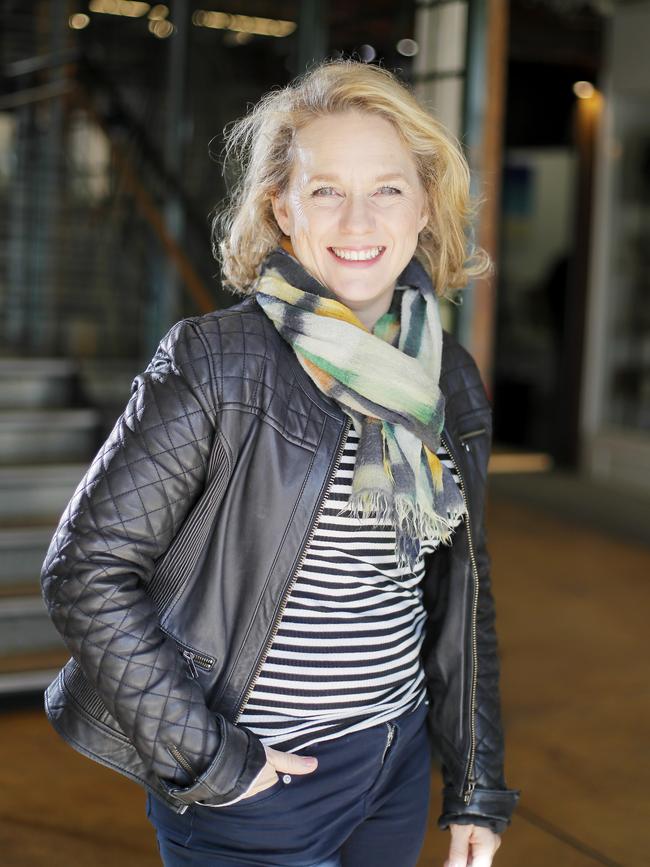
“I was literally 30,000 feet over the Pacific Ocean and I sort of asked myself ‘What are you going to do now?’,’’ Longhurst recalls.
She wanted a project that would challenge her, and push her out of her comfort zone, while also offering something new for her audience. Which required some innovative thinking, given the 56-year-old has tried her hand at a wide variety of projects over more than three decades, since leaving her home town of Hobart at the age of 21 to study at the Victorian College of the Arts and pursue an acting career.
Longhurst has appeared on some of Australia’s most-loved TV shows including Blue Heelers,
The Flying Doctors, Neighbours, GP, Janus, A Country Practice and Rosehaven. She voiced a character in Tasmanian-made children’s TV series Buzz Bumble, has been the voice of computer game characters in Japan and can also be heard on telephone hold messages and training videos for various companies.
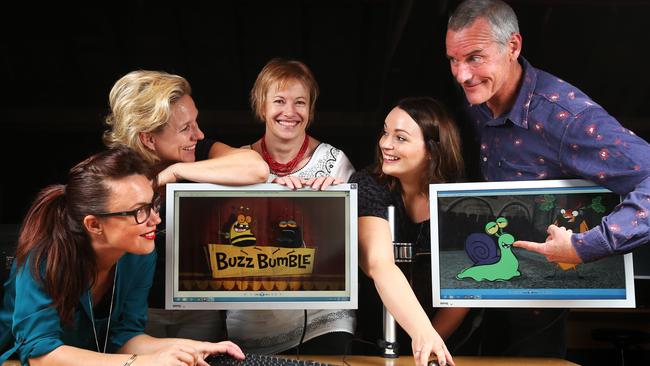
Add to that her experience as a presenter on ABC Local Radio in Hobart, her marketing role behind the scenes for The Flying Fruit Fly Circus, her appearances on TV commercials, her work as an event MC and her impressive list of theatre credits, and there isn’t much in the performing world that Longhurst hasn’t tried her hand at.
“I came up with the idea of a trilogy of plays, the Black Bag Trilogy,’’ Longhurst recalls, of the flash of inspiration she had while on that flight back to Tasmania.
Her first play in the trilogy was Happy Days, inspired by the public performance by Dianne Wiest, which she performed outdoors, in various public locations across Tasmania as part of Mona Foma last year.
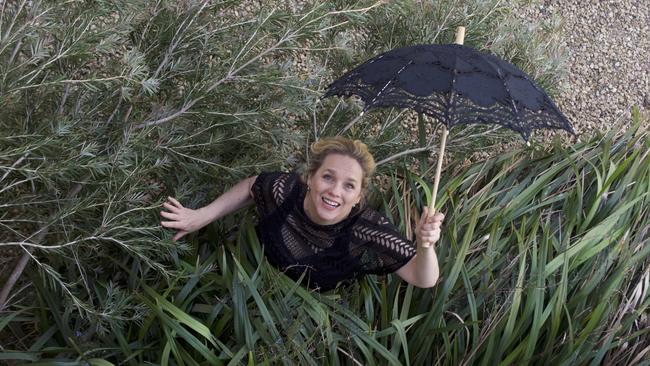
Directed by Tasmanian theatre veteran Robert Jarman, the play also featured local performer Iain Lang, set and costume design by Jill Munro and a small production crew including sound designer Jacqueline Collyer, production manager Max Ford and props inventor Greg Methe.
The second work in the trilogy is Request Programme, a one-woman play, written by German playwright Franz Xaver Kroetz and directed by Robert Jarman, which will be performed as part of the Beaker Street Festival from August 5-14 at Detached at TOMB (The Old Mercury Building).
The 70-minute show is a silent monologue – not a single word is spoken by Longhurst in the entire performance – and explores the concept of loneliness.
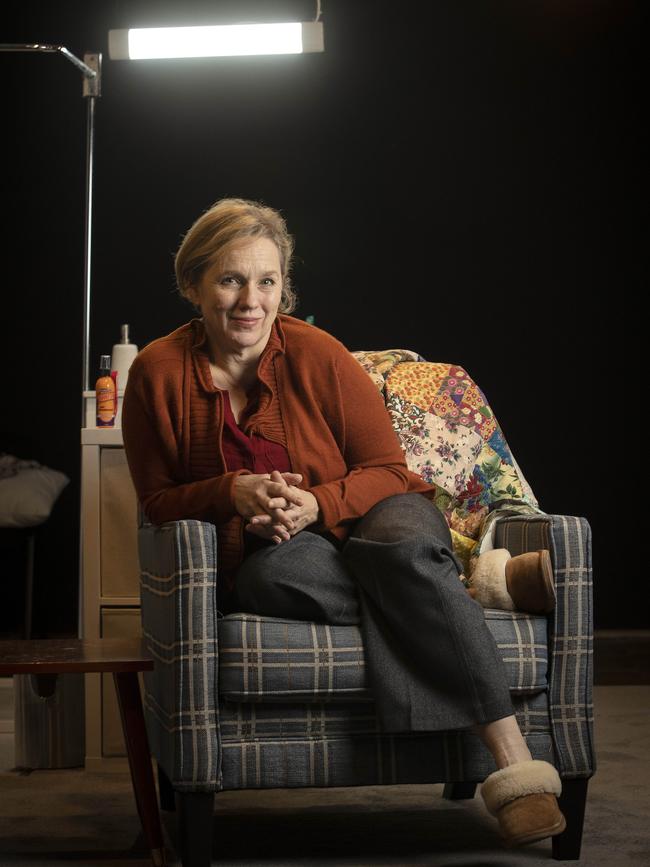
The show begins at the end of a typical working day, and follows the journey of a woman who returns to her apartment and closes the door. She changes her clothes, prepares a simple meal, listens to the radio, dedicates some time to a craft hobby, cleans up, showers, prepares for bed. One final devastating act occurs at the play’s climax.
Longhurst says the silent monologue is a portrait of loneliness, arguably more relevant and devastating today than 50 years ago when the play was written.
“Through its meticulous observation of the mundane, the central character, though mute, speaks for all the voiceless and socially isolated individuals in our community,’’ she says.
Research published by the Australian Psychological Society and Swinburne University of Technology in 2018 – before Covid-19 hit – showed 25 per cent of Australians reported feeling lonely for most of every week.
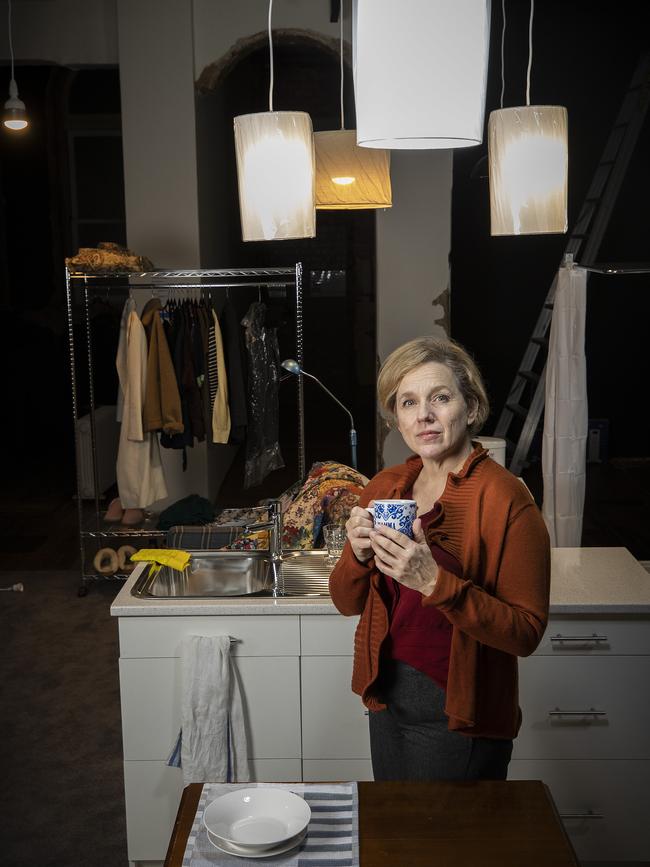
Leading social researcher Hugh Mackay says this one-in-four statistic points to a “virtual epidemic of loneliness”, which Longhurst says has no doubt worsened with the fear and isolation of a global pandemic.
Figures show loneliness costs $2.7bn a year in Australia, due to the adverse health outcomes it fuels.
Loneliness comes in many forms, whether it’s a teenager longing to feel included, a parent at home with young children craving adult interaction, a single person who is longing to meet their life partner, a middle-aged parent who has drifted away from their friends or feels lonely after their children grow up and leave home, an older person who is isolated or has lost loved ones, or someone living through a pandemic who is mourning the loss of their freedom.
But Longhurst says there’s also a strange irony, given how ubiquitous social media is, as it supposedly connects us more than ever.
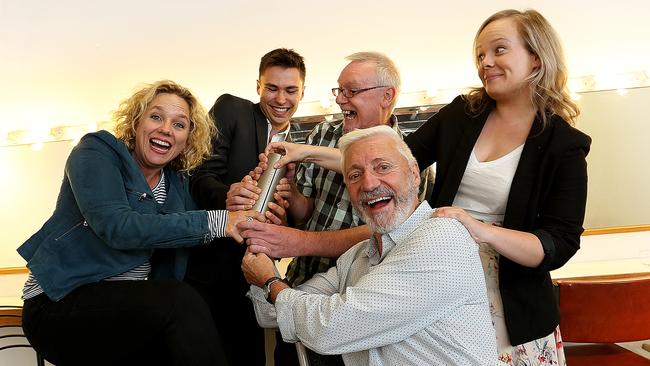
“People show off their holiday snaps, their kid’s first day at school … even though it is a way of connecting with people, undeniably there is a cost happening where people feel they don’t know their neighbours, they don’t know their community,’’ she says.
“We drive everywhere, we get home, we go inside the house and we shut the door.’’
Which, she says, makes Request Programme more relevant than ever.
“It’s a remarkable play because there’s not a word of text,’’ Longhurst enthuses.
“It’s just the action of a woman, coming home from work – she shuts the door and this is her nightly routine. The audience will have this extraordinary moment of really feeling like a voyeur. The walls have literally been peeled away.’’
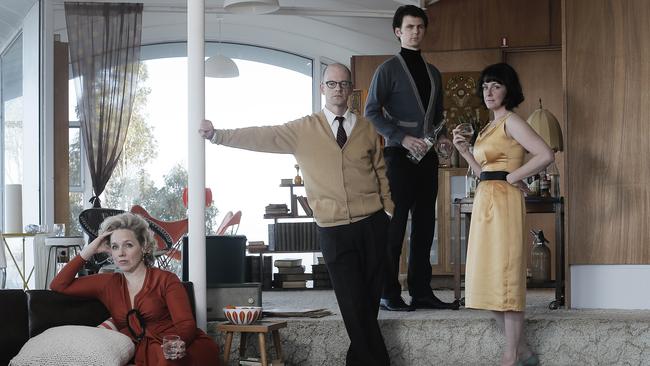
She hopes the thought-provoking play will prompt people to reassess their own lives and make some positive changes.
“I certainly think (the play) will resonate,’’ Longhurst says.
“It’s almost like a meditation in a way, to reflect on one’s own loneliness.’’
“I hope people will pause and reflect on their own lives, or maybe pause and reflect on the lives of people they know – they might say ‘this weekend I might go over and touch base with Joe who lives across the road, I haven’t seen him for a while’.’’
Lighting, sound and set design for the production is by Tasmanians Nicholas Higgins, Jacqueline Collyer, Jon Bowling and Paul Colegrave, and the voice of broadcaster Christopher Lawrence also features as the woman listens to the radio as part of her nightly routine.
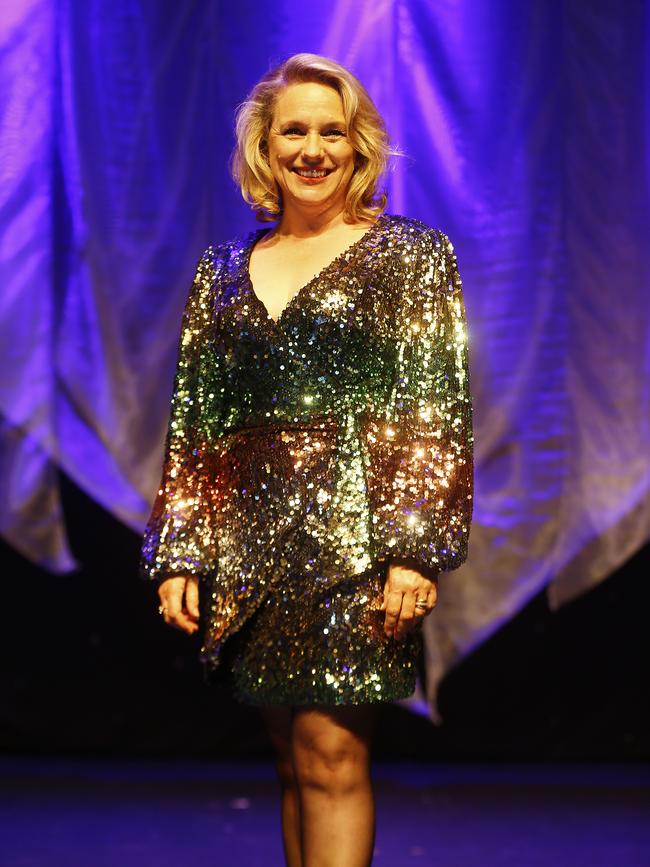
But ultimately it is just Longhurst in the spotlight, with 60 audience members at each show closely watching her every move.
“It is going to be challenging,’’ she admits of performing the show.
“But I like experimental work, I like experimenting with form and location and context.
“I find the work devastating and very moving and I think people will be altered when they leave. And I find that truly exciting.’’
With themes of loneliness, mental health and suicide being explored, Longhurst is careful to warn ticketholders of what they are in for during the show, and Lifeline Tasmania representatives will be present at each show in case audience members have anything they would like to discuss after the show.
Longhurst talks passionately about the project and hopes it will spark some important conversations. But she also can’t help but laugh about the irony of a woman who “makes a living from talking” performing in a show where she doesn’t speak a word.
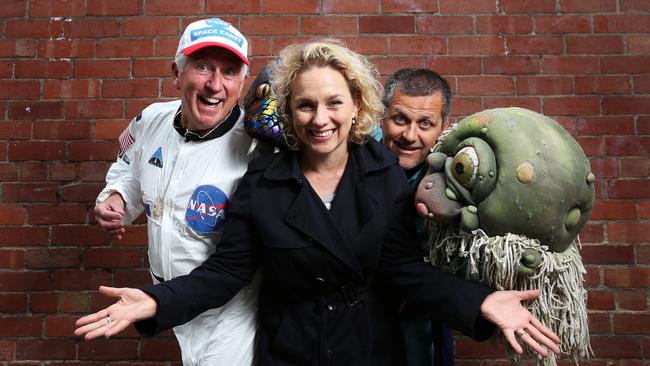
She got the idea for the show while rehearsing for another play. She and Robert Jarman were having a lunch break, on the first floor of a rehearsal venue. Longhurst looked out the window, and noticed that she could see into an office on the other side of the street.
“I said ‘wouldn’t it be cool to do a play over there while watching the action happen from over here’,’’ Longhurst recalls.
“And Robert said ‘there is a play like that’ and he told me about (Request Programme).’’
During the play, Longhurst says she has to lose all inhibitions as her character does things like getting undressed to put her pyjamas on and going to the toilet.
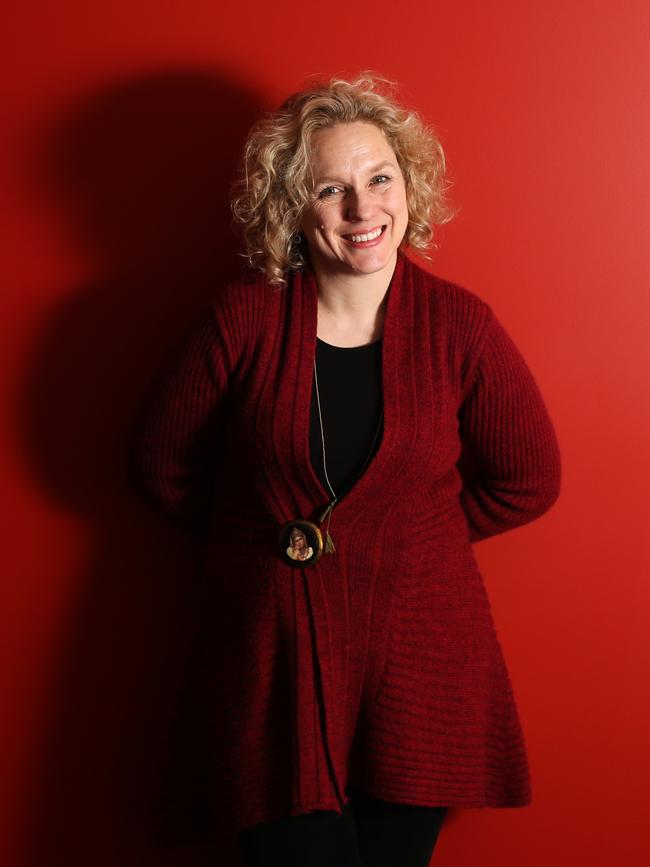
“I can’t hide behind a curtain,” Longhurst says.
“I can’t hide behind someone else or wander off stage.
“And I love that in a way. It’s important to look at stories about middle-aged people and older people. They don’t always get to be the chief protagonist, especially women. So that was another great drawcard for me.’’
Longhurst appreciates the wisdom that comes with life experience.
“I think it was Oscar Wilde who said youth is wasted on the young,’’ she says.
“And I certainly think as you age you get perspective and wisdom and experience as your body sags and your eyes wrinkle. There’s a richness to life stories. And now that I’m solidly middle-aged I’m finding there’s increasingly more and more stories to tell.
“Pop culture is pretty fixated on shiny, new and young – and blemish-free. We need to change that paradigm.’’
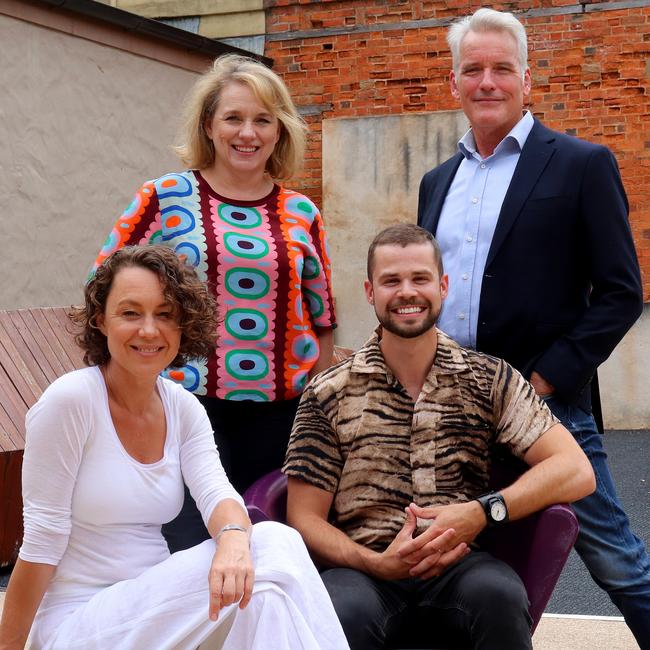
Longhurst performed in Blue Cow Theatre’s production of The Winter’s Tale at the Tasmanian Museum and Art Gallery in May, and after Request Programme finishes she will turn her attention to Blue Cow’s production of Amy’s Tattoo, a new Tasmanian play by Alison Mann, which runs at Hobart’s Theatre Royal from September 21-24.
“I don’t think even in my nubile 20s, living in Melbourne in the 1990s as a professional actor, I got three plays in a year,’’ Longhurst says.
“Believe me, I am pinching myself.
“It’s pretty unexpected and unprecedented, but I’m enjoying the ride.’’
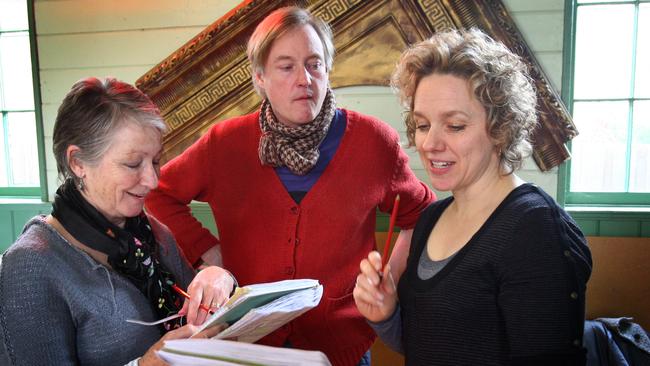
The third and final instalment of her Black Bag Trilogy will have a creative development at the end of this year thanks to an Arts Tasmania funding grant and Longhurst hopes to deliver the work in the second half of next year.
“It will be original, devised with a team of collaborators and be loosely inspired by Tasmanian housewife superstar Marjorie Bligh,’’ Longhurst says.
She finds great joy in her radio work and is passionate about the many exciting TV projects being filmed in the state – she has roles in upcoming shows Deadloch and Bay of Fires – but says nothing compares to performing on stage in front of a live audience.
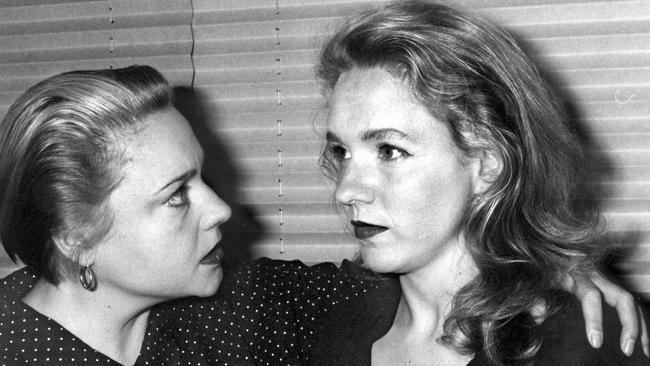
“Theatre is absolutely my first love,’’ Longhurst admits.
“A live performance is just unlike anything else.
“A lot of work goes into professional theatre and I find myself thinking ‘oh my god, this job is so good, I wouldn’t do anything else’. You can look to a colleague standing next to you, and say ‘can you believe we’re being paid to do this?’ – it’s incredible and richly rewarding.”
And the growing diversity of projects she takes on keeps this passion ignited.
“It’s exciting to keep pushing the boundaries, to keep trying to take an audience with you,’’ Longhurst says.
“And I love that I’m doing work that is often in non-traditional theatres, because audiences are so curious. It’s a gift, offering the opportunity for people to have an empathy refill.’’
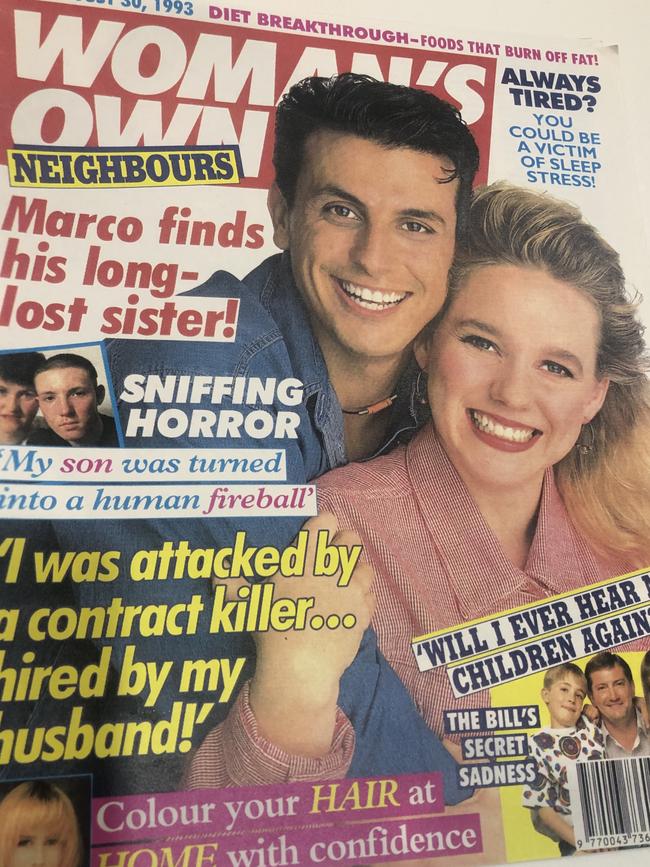
As a child growing up in Dynnyrne – she attended Princes St Primary School, Taroona High School and Hobart Matriculation College – Longhurst never had ambitions to be an actor.
She remembers flicking through the yellow pages looking for a career.
After considering life as an flight attendant (she always loved flying) she saw an ad for theatre group Apprentice Theatre.
“I didn’t know anybody, but I went along and discovered the joy that comes from performing,” Longhurst recalls.
“It’s that bond you form with the audience that’s just irresistible.”
And she still finds that bond just as irresistible today as she did as a teen.
“I’m still doing what I wanted to do from about the age of 16, so I must be doing something right,’’ Longhurst says.
This longevity has not come without hard work and sacrifice, which is why you might see Longhurst in a serious play one week, and the next minute she’ll be hosting an event for kids with the Tasmanian Symphony Orchestra, talking to authors about their latest books at a live Q&A session, or supporting a charity fundraiser.
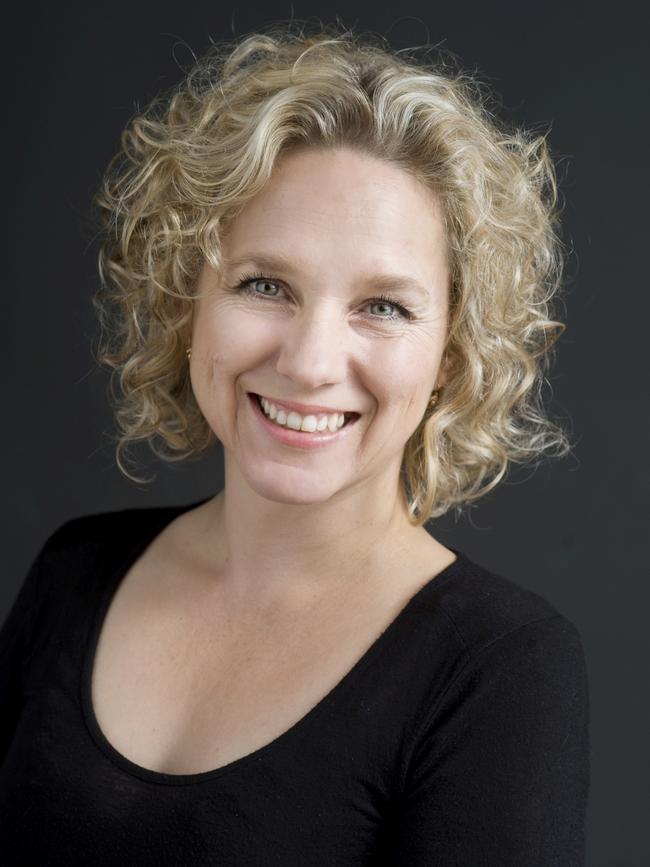
It’s not always the most lucrative career, the hours are odd, there aren’t benefits like sick pay and long-service leave, and no week is the same, especially in a household where her husband of 22 years, Guy Hooper, is also a well-known performer.
They have two sons – 20-year-old Griffin, who is studying at the National Institute of Circus Arts in Melbourne and 17-year-old Alasdair who is in Year 11 at The Friends’ School. The family moved back to Tasmania at the end of 2007, just before Griffin started school.
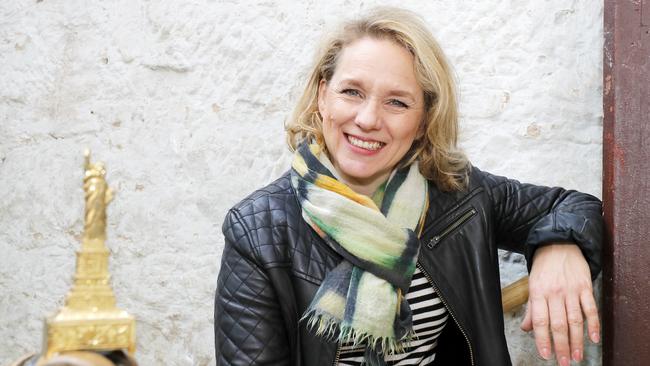
“I try and throw myself into being as industrious as I can,’’ Longhurst explains of her profession.
“To earn a very modest living to keep the wolves from the door. And I recognise what a great privilege I have to be able to do that.
“There is nothing better than doing a work with purpose that will stimulate an audience into laughter, joy, tears or whatever it may be.
“People come up to me in the supermarket, and say ‘I saw The Mares (a play she did with the Tasmanian Theatre Company in 2019) and I’ve never forgotten it’. And that’s worth more than all the gold.
“My zeal is still for the art of storytelling … if I’ve got a script in my hand, I’m pretty happy.’’
Request Programme, starring Jane Longhurst, will be performed as part of Beaker Street Festival at Detached (The Old Mercury Building in Macquarie St) from August 5-14. General admission tickets are $65 ($45 concession). Book at beakerstreet.com.au
If this story has raised any issues for you call LIFELINE: 13 11 14 or BEYOND BLUE: 1300 224 636.

Gardening guru’s move to ditch suburban life pays off
Former TV gardener Tino Carnevale is enjoying a quiet existence on the Tasman Peninsula and says ditching suburban life for country living has turned out to be one of his best decisions yet.
Tassie couples share secrets to success
Could you work with your partner? In honour of the month of love, we chat to four Tassie couples, who live and work together, about the highs and lows and their secrets for relationship success